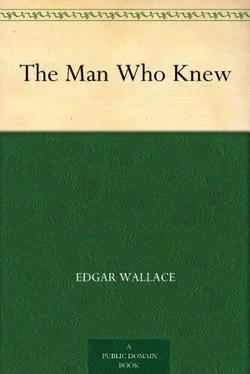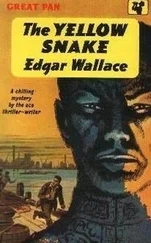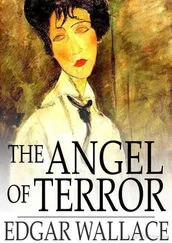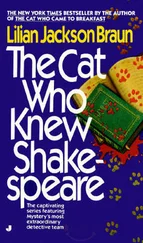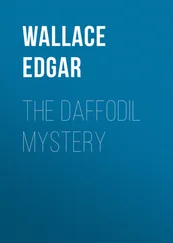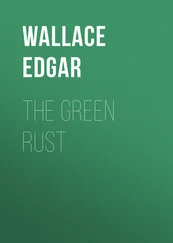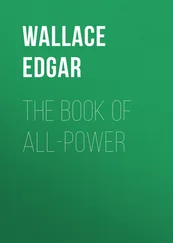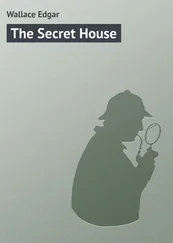INTRODUCING MR. REX HOLLAND
Mr. Rex Holland stepped out of his new car, and, standing back a pace, surveyed his recent acquisition with a dispassionate eye.
"I think she will do, Feltham," he said.
The chauffeur touched his cap and grinned broadly.
"She did it in thirty-eight minutes, sir; not bad for a twenty-mile run—half of it through London."
"Not bad," agreed Mr. Holland, slowly stripping his gloves.
The car was drawn up at the entrance to the country cottage which a lavish expenditure of money had converted into a bijou palace.
He still lingered, and the chauffeur, feeling that some encouragement to conversation was called for, ventured the view that a car ought to be a good one if one spent eight hundred pounds on it.
"Everything that is good costs money," said Mr. Rex Holland sententiously, and then continued: "Correct me if I am mistaken, but as we came through Putney did I not see you nod to the driver of another car?"
"Yes, sir."
"When I engaged you," Mr. Holland went on in his even voice, "you told me that you had just arrived from Australia and knew nobody in England; I think my advertisement made it clear that I wanted a man who fulfilled these conditions?"
"Quite right, sir. I was as much surprised as you; the driver of that car was a fellow who traveled over to the old country on the same boat as me. It's rather rum that he should have got the same kind of job."
Mr. Holland smiled quietly.
"I hope his employer is not as eccentric as I and that he pays his servant on my scale."
With this shot he unlocked and passed through the door of the cottage.
Feltham drove his car to the garage which had been built at the back of the house, and, once free from observation, lit his pipe, and, seating himself on a box, drew from his pocket a little card which he perused with unusual care.
He read:
One: To act as chauffeur and valet. Two: To receive ten pounds a week and expenses. Three: To make no friends or acquaintances. Four: Never under any circumstances to discuss my employer, his habits, or his business. Five: Never under any circumstances to go farther eastward into London than is represented by a line drawn from the Marble Arch to Victoria Station. Six: Never to recognize my employer if I see him in the street in company with any other person.
The chauffeur folded the card and scratched his chin reflectively.
"Eccentricity," he said.
It was a nice five-syllable word, and its employment was a comfort to this perturbed Australian. He cleaned his face and hands, and went into the tiny kitchen to prepare his master's dinner.
Mr. Holland's house was a remarkable one. It was filled with every form of labor-saving device which the ingenuity of man could devise. The furniture, if luxurious, was not in any great quantity. Vacuum tubes were to be found in every room, and by the attachment of hose and nozzle and the pressure of a switch each room could be dusted in a few minutes. From the kitchen, at the back of the cottage, to the dining room ran two endless belts electrically controlled, which presently carried to the table the very simple meal which his cook-chauffeur had prepared.
The remnants of dinner were cleared away, the chauffeur dismissed to his quarters, a little one-roomed building separated from the cottage, and the switch was turned over which heated the automatic coffee percolator which stood on the sideboard.
Mr. Holland sat reading, his feet resting on a chair.
He only interrupted his study long enough to draw off the coffee into a little white cup and to switch off the current.
He sat until the little silver clock on the mantelshelf struck twelve, and then he placed a card in the book to mark the place, closed it, and rose leisurely.
He slid back a panel in the wall, disclosing the steel door of a safe. This he opened with a key which he selected from a bunch. From the interior of the safe he removed a cedarwood box, also locked. He threw back the lid and removed one by one three check books and a pair of gloves of some thin, transparent fabric. These were obviously to guard against tell-tale finger prints.
He carefully pulled them on and buttoned them. Next he detached three checks, one from each book, and, taking a fountain pen from his pocket, he began filling in the blank spaces. He wrote slowly, almost laboriously, and he wrote without a copy. There are very few forgers in the criminal records who have ever accomplished the feat of imitating a man's signature from memory. Mr. Rex Holland was singularly exceptional to all precedent, for from the date to the flourishing signature these checks might have been written and signed by John Minute.
There were the same fantastic "E's," the same stiff-tailed "Y's." Even John Minute might have been in doubt whether he wrote the "Eight hundred and fifty" which appeared on one slip.
Mr. Holland surveyed his handiwork without emotion.
He waited for the ink to dry before he folded the checks and put them in his pocket. This was John Minute's way, for the millionaire never used blotting paper for some reason, probably not unconnected with an event in his earlier career. When the checks were in his pocket, Mr. Holland removed his gloves, replaced them with the check books in the box and in the safe, locked the steel door, drew the sliding panel, and went to bed.
Early the next morning he summoned his servant.
"Take the car back to town," he said. "I am going back by train. Meet me at the Holland Park tube at two o'clock; I have a little job for you which will earn you five hundred."
"That's my job, sir," said the dazed man when he recovered from the shock.
Frank sometimes accompanied May to the East End, and on the day Mr. Rex Holland returned to London he called for the girl at her flat to drive her to Canning Town.
"You can come in and have some tea," she invited.
"You're a luxurious beggar, May," he said, glancing round approvingly at the prettily furnished sitting room. "Contrast this with my humble abode in Bayswater."
"I don't know your humble abode in Bayswater," she laughed. "But why on earth you should elect to live at Bayswater I can't imagine."
He sipped his tea with a twinkle in his eye.
"Guess what income the heir of the Minute millions enjoys?" he asked ironically. "No, I'll save you the agony of guessing. I earn seven pounds a week at the bank, and that is the whole of my income."
"But doesn't uncle—" she began in surprise.
"Not a bob," replied Frank vulgarly; "not half a bob."
"But—"
"I know what you're going to say; he treats you generously, I know. He treats me justly. Between generosity and justice, give me generosity all the time. I will tell you something else. He pays Jasper Cole a thousand a year! It's very curious, isn't it?"
She leaned over and patted his arm.
"Poor boy," she said sympathetically, "that doesn't make it any easier—Jasper, I mean."
Frank indulged in a little grimace, and said:
"By the way, I saw the mysterious Jasper this morning—coming out of the Waterloo Station looking more mysterious than ever. What particular business has he in the country?"
She shook her head and rose.
"I know as little about Jasper as you," she answered.
She turned and looked at him thoughtfully.
"Frank," she said, "I am rather worried about you and Jasper. I am worried because your uncle does not seem to take the same view of Jasper as you take. It is not a very heroic position for either of you, and it is rather hateful for me."
Frank looked at her with a quizzical smile.
"Why hateful for you?"
She shook her head.
"I would like to tell you everything, but that would not be fair."
"To whom?" Frank asked quickly.
"To you, your uncle, or to Jasper."
Читать дальше
